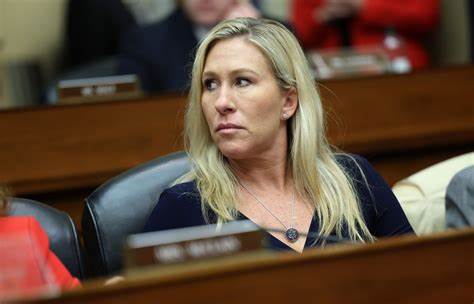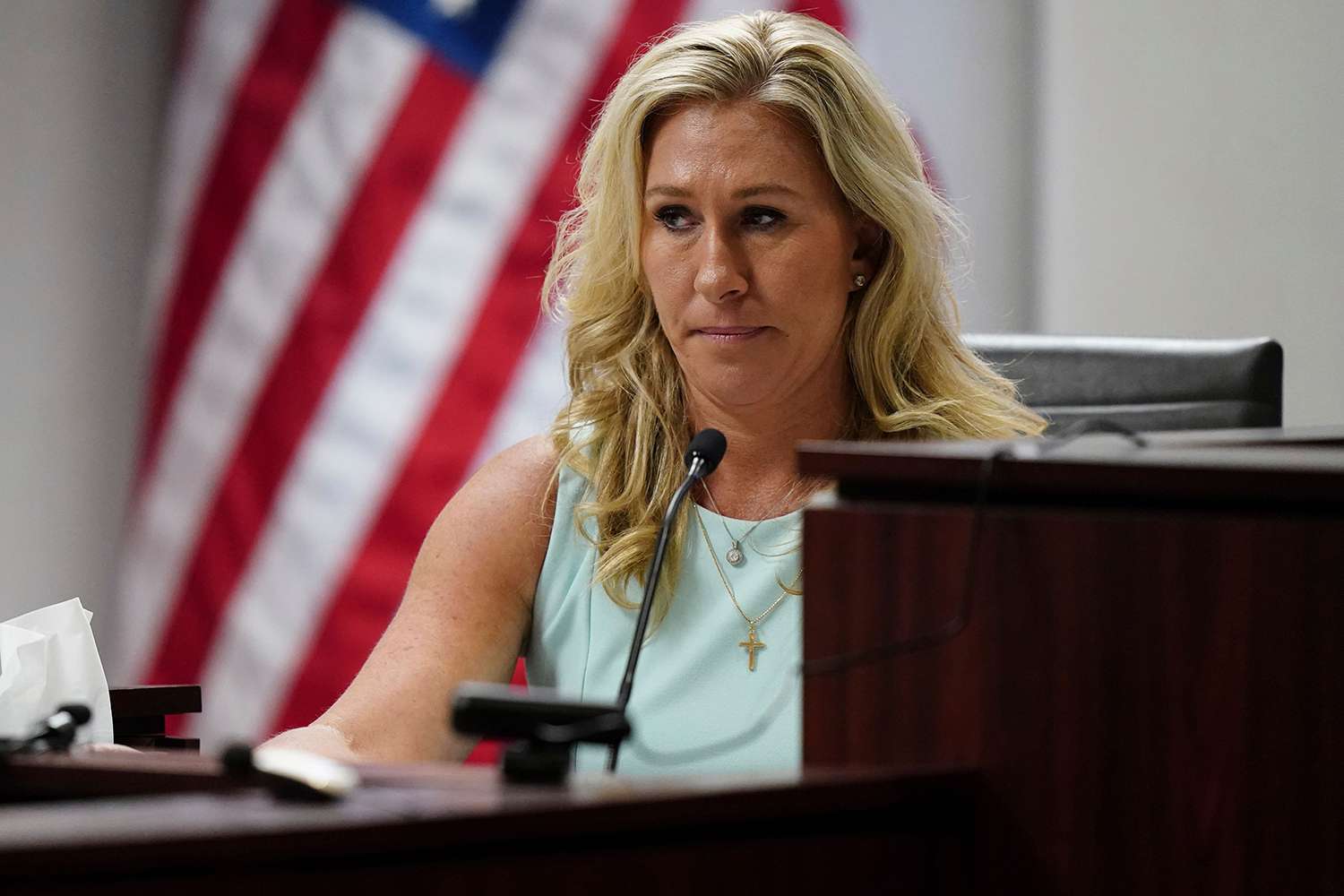In the midst of an already polarized nation, Rep. Marjorie Taylor Greene has reignited contentious debates with her call for a “national divorce” between red and blue states. The backdrop for this heated discourse is the intensifying standoff over migration at the Texas border, where Gov. Greg Abbott’s confrontations with the federal government have reached new heights.
The focal point of this clash lies in Texas, where Governor Abbott’s defiance persists in efforts to install razor wire as a deterrent against migrants crossing from Mexico. Despite a recent Supreme Court ruling favoring the federal government, allowing U.S. Border Patrol to remove barriers erected by the Texas National Guard, Abbott stands firm. It is within this context that Rep. Greene voiced her call for a “National Divorce,” emphasizing her point amid the escalating tensions.
Responding to a social media post, Rep. Greene reiterated her stance, pointing to the Texas situation as a prime example of why she advocates for a national separation along political lines. The Georgia congresswoman has previously floated this idea, triggering discussions on the divisive nature of such a proposal and evoking varied reactions across the political spectrum.
In a notable display of unity, twenty-five Republican governors rallied behind Governor Abbott, praising his commitment to American security in the face of challenges related to immigration, illegal drug trafficking, and potential terrorist threats. This collective support underscores the complex interplay between state autonomy and federal mandates, particularly on matters as contentious as border security.

Read more:
- California Lawmaker Proposes Speed Limit Technology to Curb Road Deaths
- Tragedy Strikes as Young Dancer Dies from Mislabeling of Peanuts in Cookies
- New Concealed Carry Law Denied by Another Northern California Count
- U.S. Takes Action to Safeguard Whales Around Offshore Wind Farms
Adding another layer to the discourse is former President Donald Trump, who has strategically elevated immigration concerns as a central theme in his 2024 campaign narrative. His influence is evident as Republicans grapple with the prospect of a bipartisan border deal, prompting criticism from California Gov. Gavin Newsom towards GOP lawmakers for what he perceives as capitulation to Trump’s pressures. This political maneuvering within the Republican Party further complicates the landscape, contributing to the broader debate on the direction of the conservative agenda.
Amidst these political maneuvers, concerns have emerged about the potential federalization of the Texas National Guard, introducing the possibility of troops navigating conflicts between state allegiance and federal responsibilities. This apprehension has fueled discussions about the potential for civil unrest and resistance within conservative media circles and political spheres.
Rep. Greene, an unwavering supporter of Donald Trump, continues to champion her controversial proposal for a national divorce, attracting both attention and criticism, even from within her own party ranks. The debate she has ignited encapsulates the deep-rooted ideological divisions within the United States and raises fundamental questions about the viability of such drastic solutions to address the complex challenges faced by the nation.
As the nation grapples with these complexities, the border standoff in Texas serves as a microcosm of broader debates on immigration, state autonomy, and the role of federal authority. The intertwined issues of national unity, security, and political polarization underscore the need for nuanced and comprehensive solutions that address the root causes of these challenges rather than resorting to divisive proposals like a national divorce.

